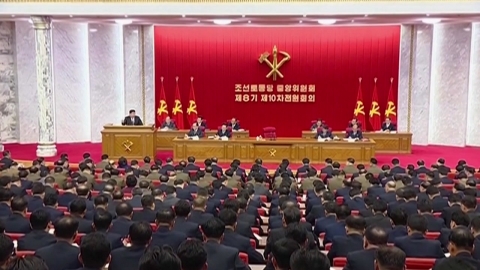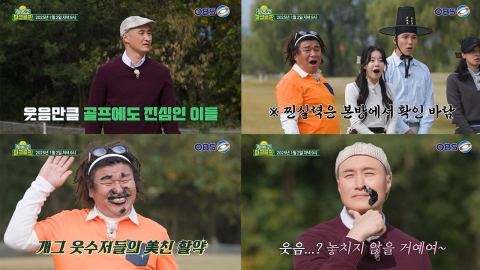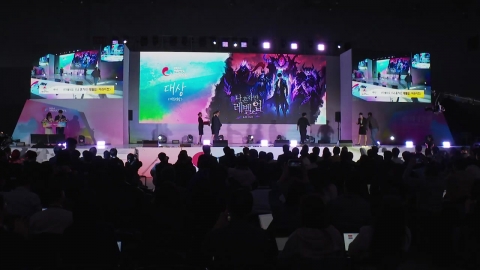[Open Radio] Media reports on the 28-hour confrontation of Nam Tae-ryeong.
이미지 확대 보기
![[Open Radio] Media reports on the 28-hour confrontation of Nam Tae-ryeong.](http://image.ytn.co.kr/general/jpg/2024/1228/202412282339174203_d.jpg)
[Open Radio YTN]
■ Broadcast: YTN Radio FM 94.5 (20:20-21:00)
■ Air date: December 28, 2024 (Saturday)
■ Host: announcer Choi Hwi
■ Dialogue: Kim Un-kyung, Director of the Human Rights Research Institute for Media and Human Rights
* The text below may differ from the actual broadcast content, so please check the broadcast for more accurate information.
■ Broadcast: YTN Radio FM 94.5 (20:20-21:00)
■ Air date: December 28, 2024 (Saturday)
■ Host: announcer Choi Hwi
■ Dialogue: Kim Un-kyung, Director of the Human Rights Research Institute for Media and Human Rights
* The text below may differ from the actual broadcast content, so please check the broadcast for more accurate information.
◇ Announcer Choi Hwi (hereinafter referred to as Choi Hwi): Time to chew the news for a week. It's media criticism. Today, let's meet on the phone with Kim Un-kyung, director of the Moongle Media Human Rights Research Institute. Hello, director.
◆ Kim Eon-kyung, Director of the Human Rights Research Institute of Media (hereinafter referred to as Kim Eon-kyung): Yes, hello.
◇ Choi Hwi: Yes, it was last Saturday. Farmers who drove tractors and cargo trucks to Seoul, foreshadowing a rally in front of the presidential residence, confronted the police overnight as they were blocked by police from around 12 p.m. at Namtaeryeong Pass in Gwacheon. The next day, around 5 p.m., some tractor marches resumed, leading to a large rally near Hannam-dong's official residence. Today, you're going to talk about how our media reported the human rights violations in this process?
◆ [Kim Eon-kyung] Yes, that's right. If we don't narrow down the topic like that, it will be difficult for us to handle all these two days in the given time. That's how much coverage there is now. First of all, I'm going to only deal with the human rights aspect of this issue. I would like to point out whether the media has properly pointed out these human rights aspects in a timely and timely manner.
◇ Choi Hwi: Yes. Shall we first summarize this issue and start talking?
◆ Kim Eon-kyung: Yes. The people who drove tractors and cargo trucks to Seoul this time are called the National Farmers' Federation, or 'farmer' for short. It is also reduced to "female farmers" of the national women's farmers' union. They are the Jeon Bong-jun Fighting Team, which was formed by a coalition of former farmers and female farmers. They left Jinju, South Gyeongsang Province, and Muan, South Jeolla Province, divided into Dong-gun and Seo-gun on the 16th, urging the arrest of President Yoon Suk Yeol. On the 19th, they urge the president to cite the impeachment motion in front of the Sejong Government Complex and the Ministry of Agriculture, Food and Rural Affairs. We held a rally to denounce the exercise of the right to demand reconsideration on the amendment to the Agricultural 4 Act. Then, I passed through Pyeongtaek and arrived in Suwon on the 20th. And I had a plan to enter Seoul on the morning of the 21st and march to the presidential residence and Gwanghwamun candlelight rally. However, on the 20th, a day before the date of the declaration of the march, the police sent a notice of restrictions on outdoor rallies to Jeonnong. According to the notice, the police said, "Tractors and lorries are not allowed and rallies other than marches are not allowed." I cited the fact that most of these marches are major roads under the Act on Assembly and Protest and that there is a risk of traffic inconvenience if lorries and tractors march. Jeon Nong immediately protested, saying, "This decision by the police is a serious violation of basic rights that limited the freedom of assembly and demonstration," and they expressed their position to push ahead with the march as planned. The police blocked all eight lanes of Namtae-ryeong by building a car wall as a police car. They began to confront the police at the part where they crossed Namtaeryeong Pass. As of 1:20 p.m. on the 21st, it is understood that three tractors entered Seoul. The sit-in began near the spot as the remaining 30 tractors confronted over Namtaeryeong Pass. But this day was a really cold day. That's why many citizens sent items or food to support the sit-in. Basically, it was a serious situation that felt really threatened by the cold, but it was pointed out that citizens were left almost isolated. As this situation was shared through SNS, more citizens joined Nam Tae-ryeong from dawn. And by 2 p.m. on Sunday, the 22nd, the number of citizens participating in Namtaeryeong Farming Growth increased to about 10,000, according to the organizer's estimate. Politicians and civil society also joined, and a large number of opposition lawmakers, including the Democratic Party of Korea, the Cho Kuk Innovation Party, and the Progressive Party, visited the site and negotiated with the police. In addition, the emergency action of Yoon Suk Yeol's resignation was applied to the National Human Rights Commission of Korea for emergency relief. Eventually, the police were pushed by public opinion around 4 p.m. and opened the barrier. At around 5 p.m., the leading tractor arrived at the Sadang Station intersection, and the tractor march arrived at 6:40 p.m. in front of the Hannam-dong residence, where the president of Yoon Suk Yeol is located, to gather and disperse smoothly at 7 p.m.
◇ Choi Hwi: You gave me an overview of the Jeonnong tractor march from the 21st to the 22nd. Several human rights issues have already been mentioned. Can you point it out one by one?
◆ Kim Eon-kyung: First of all, I have to point out whether it was appropriate for the 'restriction notification' made by the Seoul Metropolitan Police Agency. Acting National Police Agency Commissioner Lee Ho-young attended a plenary session of the National Assembly's Public Administration and Security Committee on the 23rd and said, "We judged that some restrictions on the entry of tractors were not problematic in practice." But before they came to Seoul, no one else stopped them like this. In short, the tractor's march went smoothly. Rather, they were able to safely march with some sort of escort. The Seoul Metropolitan Police said, "Vehicle protests are very dangerous, and among them, tractors drive at low speeds, causing severe traffic inconvenience in urban areas. Since Seoul has more traffic than other places, it has consistently notified of restrictions to prevent tractors from entering on major roads. ’ This was the position. I looked for it a little bit and found that the speed of the vehicle, called a tractor, has increased a lot compared to the previous one, so it has increased from 50km to 60km. However, it is actually very slow compared to a car and usually goes about 30km. And they're doing tractor marches because they're trying to see the effect of some kind of demonstration. So it's going to be very slow, so it's clear that traffic inconvenience can occur. But if we protest, anyone can predict traffic congestion or inconvenience. Nevertheless, because we respect the freedom of expression of assembly and demonstration, citizens bear this inconvenience and condone it in a way. It doesn't have to be a tractor like this. In fact, it is a little absurd for citizens to strongly prevent tractor protests only in Seoul, saying, "No tractor protests." I don't understand why I have to do this. Legally speaking, at a meeting of lawyers for a democratic society on the 24th, lawyer Kim Sang-eun said, "In the case of a notice of prohibition, it should be done 48 hours before the assembly demonstration. In the case of this limited notification, there is no time limit, so it is an expedient using a time when it is difficult to legally argue. ’ That's what I pointed out. It was pointed out that the form was a limited notice because the police banned all major means at the rally, but it was actually close to a ban notice. In addition, the restriction notice did not ban assembly demonstrations entirely, unlike the prohibition notice. However, this time, the actual police blocked the entire eight lanes of Namtae-ryeong. So this really has the effect of a notice of prohibition. There was a similar case during the Park Geun Hye government. At that time, the court once ruled in favor of Jeon Nong. So in November 2016, Jeon Nong reported that he would attend the rally with tractors. At that time, the police did not allow the assembly due to traffic inconvenience. When Jeon Nong filed an application for suspension of execution, the Seoul Administrative Court said the police should cancel the five rallies and the ban on marching. Kim Tae-geun, a lawyer at the law firm Yongpyong, pointed out, "The police are likely to lose if it goes to a legal issue because we did not review how to properly harmonize the freedom of assembly and demonstration with the public well-being order according to the 2016 precedent." "It is meaningful to rally in front of the object of protest, and if you prevent this act itself, it violates the principle of excessive prohibition. ’ That's what I pointed out.
◇ Choi Hwi: Did the legal or de facto prohibition notice you just mentioned get well communicated through the media?
◆ [Kim Eon-kyung] That's not true. I monitored the media reports at the time. In fact, on Saturday afternoon of the 21st, there was a pro-impeachment rally in Gwanghwamun and a large rally of those against it. So there were a lot of reports about them. In the meantime, it was reported that 'the Jeon Bong-jun struggle group was not allowed to enter Seoul and is now facing confrontation in Namtae-ryeong.' However, at this time, most of the reports related to Nam Tae-ryeong were photo reports. Is this 'police action' I mentioned appropriate? The report that pointed out 'what is the problem with this measure' came out really late. At least, the report that can be said to have delivered this content quickly. This is a report from Kyunghyang Shinmun that reported at 3:44 p.m. on the 21st. It was a report titled "Farmers Tractor Protests Blocked by Police, Serious Infringement of Freedom of assembly and demonstration". This report is relatively fast, but you said it was 3:44 p.m. on the 21st. So instead of being fast, did it come out a lot after that? That's not it either. From the 21st to the 22nd, there were very few reports dealing with the Minbyun's statement. On the 21st, there were only two media reports on the Minbyun's statement, the Kyunghyang Shinmun and Maeil Shinmun. On the 22nd, Top Star News, Good Morning Chungcheong, Sound of Jeonbuk, Laurider, and Segye Ilbo reported this, but in fact, it can be said that it was a little late to report it on the 22nd. If the purpose was to stop the police's hard-line response, in fact, I think there should have been a report to the media on the 21st about whether the police's response was appropriate. However, the media was not able to report on the move quickly. Didn't the media just focus on the police taking this step and catching the picture that the tractor was stopped in Namtae-ryeong, but not the idea of trying to figure out whether it was an appropriate measure? That's what I think. It is also regrettable that Minbyun, who had such an idea in advance and pointed it out, did not even make an effort to write it down, even though he made a statement. I thought that this media reporting behavior should be criticized.
◇ Choi Hwi: However, it seems that there was a question about acting police chief Lee Ho-young at the plenary session of the National Assembly's Public Administration and Security Committee on the 23rd, followed by a rebuke from lawmakers, and there were quite a few media reports on it.
◆ [Kim Eon-kyung] Yes, that's right. There were many reports about this after lawmakers rebuked acting police chief Lee Ho-young at the National Assembly on the 23rd. As you said, several Members have pointed out this issue. In particular, the remarks of Kim Sang-wook, a member of the People's Power, drew attention. Rep. Kim told acting National Police Agency Commissioner Lee Ho-young at a plenary session of the National Assembly's executive and security committee on the 23rd, "Do you think Deputy Chief Lee has managed the assembly and demonstration well regarding Nam Tae-ryeong? ’ That's what I asked. Then Deputy Director Lee said, "The assembly continued for two days until night, and we had no choice but to put safety first, so we concluded it in consultation with the organizers. ’ That's the answer. Then, Rep. Kim Sang-wook said, "That's what I want to raise the issue. Ordinary citizens who participated in the rally suffered tremendously for two days in this cold weather, and as confrontation with each other intensified unnecessarily, an environment in which citizens were excited and police officers were excited to collide. Could we have communicated a little earlier? ’ I pinched it like this. Representative Kim said, "In this current situation, the police should not be the main agents of intensifying confrontation, but should ease confrontation by communicating more actively. ’ I expressed this opinion. In fact, it can be seen that even a member of the People's Power pointed out that the police overreacted. In addition, opposition lawmakers, such as the Democratic Party of Korea and the Cho Kuk Innovation Party, made strong points. Rep. Kim Sung-hoe of the Democratic Party said, "It's good that everything ended peacefully due to a smooth agreement between civic groups and the police, but why did you block the tractor in the first place? Can the people understand that tractors can be operated in Gyeonggi-do, but tractors can't be operated in Seoul, so they blocked Nam Tae-ryeong? ’ That's how I picked it. Rep. Kim replied to the effect that Deputy Lee said, "Nam Tae-ryeong is a major road under the Assembly Act and blocked it because of concerns about safety issues." If there is a safety problem, can we just block all the tractors? Does the law allow it? ’ I asked again like this. At the same time, when some people leave their houses to protest, to do what the police do now, they say in front of the door, 'You're the one who wants to go to Gwanghwamun rally. Don't go out. ’ Are you saying you can block it like this? That's why I picked it again. These lawmakers' comments have been reported a lot in the media. The problem is that the media is reporting the voice of criticism only when lawmakers criticize the National Assembly after the work is completed. The police have blocked him and are now confronting him in Namtaeryeong. ’ Only this was repeated by the media. Why did the police stop you? Why are you blocking it? Is this measure appropriate now? ’ Many citizens are asking this question, but the media was not asking it at all. That was so frustrating.
◇ Choi Hwi: Is there anything you want to say lastly?
◆ Kim Eon-kyung: It was pointed out in the National Assembly that an anonymous bulletin board written by employees believed to be police officers was certified and registered through e-mail. Rep. Park Jung-hyun of the Democratic Party of Korea made this point in a question against acting National Police Agency Commissioner Lee Ho-young at a plenary session of the National Assembly's Public Administration and Security Committee held on the 23rd. These remarks were really close to a very obvious hate speech because they could not criticize the citizens who participated in the Nam Tae-ryeong rally. For example, 'If it were Europe, I would have drilled a bullet hole in the heads of these criminals who obstructed the execution of such attempted murder. ’ There's this expression in it. There were comments that could not be overlooked. The acting president said he was "unconfirmed." I'll check it out. ’ I repeated this answer. Representative Park said he is believed to be an employee of the National Police Agency, and asked him to take action and report it to the Public Administration and Security Commission. These are the contents. It's an obvious hate speech. If this is really what the police did, the police have public power and are actually public officials. The hate speech they make is just as important. And the role of monitoring this is really what the media should do. The media should really properly monitor how the police handle this and communicate this to the people. What I really want to say today is, is the media playing its role now? I want you to check it out. I was so disappointed to see the media delivering this Nam Tae-ryeong issue. I would like to say that the media should have a sense of crisis that they should find their role.
◇ Yes, that's it for today. Thank you.
◆ Kim Eon-kyung: Thank you.
◇ Choi Hwi: This has been Kim Eon-kyung, the head of the Moongle Media Human Rights Research Institute.
◆ Kim Eon-kyung, Director of the Human Rights Research Institute of Media (hereinafter referred to as Kim Eon-kyung): Yes, hello.
◇ Choi Hwi: Yes, it was last Saturday. Farmers who drove tractors and cargo trucks to Seoul, foreshadowing a rally in front of the presidential residence, confronted the police overnight as they were blocked by police from around 12 p.m. at Namtaeryeong Pass in Gwacheon. The next day, around 5 p.m., some tractor marches resumed, leading to a large rally near Hannam-dong's official residence. Today, you're going to talk about how our media reported the human rights violations in this process?
◆ [Kim Eon-kyung] Yes, that's right. If we don't narrow down the topic like that, it will be difficult for us to handle all these two days in the given time. That's how much coverage there is now. First of all, I'm going to only deal with the human rights aspect of this issue. I would like to point out whether the media has properly pointed out these human rights aspects in a timely and timely manner.
◇ Choi Hwi: Yes. Shall we first summarize this issue and start talking?
◆ Kim Eon-kyung: Yes. The people who drove tractors and cargo trucks to Seoul this time are called the National Farmers' Federation, or 'farmer' for short. It is also reduced to "female farmers" of the national women's farmers' union. They are the Jeon Bong-jun Fighting Team, which was formed by a coalition of former farmers and female farmers. They left Jinju, South Gyeongsang Province, and Muan, South Jeolla Province, divided into Dong-gun and Seo-gun on the 16th, urging the arrest of President Yoon Suk Yeol. On the 19th, they urge the president to cite the impeachment motion in front of the Sejong Government Complex and the Ministry of Agriculture, Food and Rural Affairs. We held a rally to denounce the exercise of the right to demand reconsideration on the amendment to the Agricultural 4 Act. Then, I passed through Pyeongtaek and arrived in Suwon on the 20th. And I had a plan to enter Seoul on the morning of the 21st and march to the presidential residence and Gwanghwamun candlelight rally. However, on the 20th, a day before the date of the declaration of the march, the police sent a notice of restrictions on outdoor rallies to Jeonnong. According to the notice, the police said, "Tractors and lorries are not allowed and rallies other than marches are not allowed." I cited the fact that most of these marches are major roads under the Act on Assembly and Protest and that there is a risk of traffic inconvenience if lorries and tractors march. Jeon Nong immediately protested, saying, "This decision by the police is a serious violation of basic rights that limited the freedom of assembly and demonstration," and they expressed their position to push ahead with the march as planned. The police blocked all eight lanes of Namtae-ryeong by building a car wall as a police car. They began to confront the police at the part where they crossed Namtaeryeong Pass. As of 1:20 p.m. on the 21st, it is understood that three tractors entered Seoul. The sit-in began near the spot as the remaining 30 tractors confronted over Namtaeryeong Pass. But this day was a really cold day. That's why many citizens sent items or food to support the sit-in. Basically, it was a serious situation that felt really threatened by the cold, but it was pointed out that citizens were left almost isolated. As this situation was shared through SNS, more citizens joined Nam Tae-ryeong from dawn. And by 2 p.m. on Sunday, the 22nd, the number of citizens participating in Namtaeryeong Farming Growth increased to about 10,000, according to the organizer's estimate. Politicians and civil society also joined, and a large number of opposition lawmakers, including the Democratic Party of Korea, the Cho Kuk Innovation Party, and the Progressive Party, visited the site and negotiated with the police. In addition, the emergency action of Yoon Suk Yeol's resignation was applied to the National Human Rights Commission of Korea for emergency relief. Eventually, the police were pushed by public opinion around 4 p.m. and opened the barrier. At around 5 p.m., the leading tractor arrived at the Sadang Station intersection, and the tractor march arrived at 6:40 p.m. in front of the Hannam-dong residence, where the president of Yoon Suk Yeol is located, to gather and disperse smoothly at 7 p.m.
◇ Choi Hwi: You gave me an overview of the Jeonnong tractor march from the 21st to the 22nd. Several human rights issues have already been mentioned. Can you point it out one by one?
◆ Kim Eon-kyung: First of all, I have to point out whether it was appropriate for the 'restriction notification' made by the Seoul Metropolitan Police Agency. Acting National Police Agency Commissioner Lee Ho-young attended a plenary session of the National Assembly's Public Administration and Security Committee on the 23rd and said, "We judged that some restrictions on the entry of tractors were not problematic in practice." But before they came to Seoul, no one else stopped them like this. In short, the tractor's march went smoothly. Rather, they were able to safely march with some sort of escort. The Seoul Metropolitan Police said, "Vehicle protests are very dangerous, and among them, tractors drive at low speeds, causing severe traffic inconvenience in urban areas. Since Seoul has more traffic than other places, it has consistently notified of restrictions to prevent tractors from entering on major roads. ’ This was the position. I looked for it a little bit and found that the speed of the vehicle, called a tractor, has increased a lot compared to the previous one, so it has increased from 50km to 60km. However, it is actually very slow compared to a car and usually goes about 30km. And they're doing tractor marches because they're trying to see the effect of some kind of demonstration. So it's going to be very slow, so it's clear that traffic inconvenience can occur. But if we protest, anyone can predict traffic congestion or inconvenience. Nevertheless, because we respect the freedom of expression of assembly and demonstration, citizens bear this inconvenience and condone it in a way. It doesn't have to be a tractor like this. In fact, it is a little absurd for citizens to strongly prevent tractor protests only in Seoul, saying, "No tractor protests." I don't understand why I have to do this. Legally speaking, at a meeting of lawyers for a democratic society on the 24th, lawyer Kim Sang-eun said, "In the case of a notice of prohibition, it should be done 48 hours before the assembly demonstration. In the case of this limited notification, there is no time limit, so it is an expedient using a time when it is difficult to legally argue. ’ That's what I pointed out. It was pointed out that the form was a limited notice because the police banned all major means at the rally, but it was actually close to a ban notice. In addition, the restriction notice did not ban assembly demonstrations entirely, unlike the prohibition notice. However, this time, the actual police blocked the entire eight lanes of Namtae-ryeong. So this really has the effect of a notice of prohibition. There was a similar case during the Park Geun Hye government. At that time, the court once ruled in favor of Jeon Nong. So in November 2016, Jeon Nong reported that he would attend the rally with tractors. At that time, the police did not allow the assembly due to traffic inconvenience. When Jeon Nong filed an application for suspension of execution, the Seoul Administrative Court said the police should cancel the five rallies and the ban on marching. Kim Tae-geun, a lawyer at the law firm Yongpyong, pointed out, "The police are likely to lose if it goes to a legal issue because we did not review how to properly harmonize the freedom of assembly and demonstration with the public well-being order according to the 2016 precedent." "It is meaningful to rally in front of the object of protest, and if you prevent this act itself, it violates the principle of excessive prohibition. ’ That's what I pointed out.
◇ Choi Hwi: Did the legal or de facto prohibition notice you just mentioned get well communicated through the media?
◆ [Kim Eon-kyung] That's not true. I monitored the media reports at the time. In fact, on Saturday afternoon of the 21st, there was a pro-impeachment rally in Gwanghwamun and a large rally of those against it. So there were a lot of reports about them. In the meantime, it was reported that 'the Jeon Bong-jun struggle group was not allowed to enter Seoul and is now facing confrontation in Namtae-ryeong.' However, at this time, most of the reports related to Nam Tae-ryeong were photo reports. Is this 'police action' I mentioned appropriate? The report that pointed out 'what is the problem with this measure' came out really late. At least, the report that can be said to have delivered this content quickly. This is a report from Kyunghyang Shinmun that reported at 3:44 p.m. on the 21st. It was a report titled "Farmers Tractor Protests Blocked by Police, Serious Infringement of Freedom of assembly and demonstration". This report is relatively fast, but you said it was 3:44 p.m. on the 21st. So instead of being fast, did it come out a lot after that? That's not it either. From the 21st to the 22nd, there were very few reports dealing with the Minbyun's statement. On the 21st, there were only two media reports on the Minbyun's statement, the Kyunghyang Shinmun and Maeil Shinmun. On the 22nd, Top Star News, Good Morning Chungcheong, Sound of Jeonbuk, Laurider, and Segye Ilbo reported this, but in fact, it can be said that it was a little late to report it on the 22nd. If the purpose was to stop the police's hard-line response, in fact, I think there should have been a report to the media on the 21st about whether the police's response was appropriate. However, the media was not able to report on the move quickly. Didn't the media just focus on the police taking this step and catching the picture that the tractor was stopped in Namtae-ryeong, but not the idea of trying to figure out whether it was an appropriate measure? That's what I think. It is also regrettable that Minbyun, who had such an idea in advance and pointed it out, did not even make an effort to write it down, even though he made a statement. I thought that this media reporting behavior should be criticized.
◇ Choi Hwi: However, it seems that there was a question about acting police chief Lee Ho-young at the plenary session of the National Assembly's Public Administration and Security Committee on the 23rd, followed by a rebuke from lawmakers, and there were quite a few media reports on it.
◆ [Kim Eon-kyung] Yes, that's right. There were many reports about this after lawmakers rebuked acting police chief Lee Ho-young at the National Assembly on the 23rd. As you said, several Members have pointed out this issue. In particular, the remarks of Kim Sang-wook, a member of the People's Power, drew attention. Rep. Kim told acting National Police Agency Commissioner Lee Ho-young at a plenary session of the National Assembly's executive and security committee on the 23rd, "Do you think Deputy Chief Lee has managed the assembly and demonstration well regarding Nam Tae-ryeong? ’ That's what I asked. Then Deputy Director Lee said, "The assembly continued for two days until night, and we had no choice but to put safety first, so we concluded it in consultation with the organizers. ’ That's the answer. Then, Rep. Kim Sang-wook said, "That's what I want to raise the issue. Ordinary citizens who participated in the rally suffered tremendously for two days in this cold weather, and as confrontation with each other intensified unnecessarily, an environment in which citizens were excited and police officers were excited to collide. Could we have communicated a little earlier? ’ I pinched it like this. Representative Kim said, "In this current situation, the police should not be the main agents of intensifying confrontation, but should ease confrontation by communicating more actively. ’ I expressed this opinion. In fact, it can be seen that even a member of the People's Power pointed out that the police overreacted. In addition, opposition lawmakers, such as the Democratic Party of Korea and the Cho Kuk Innovation Party, made strong points. Rep. Kim Sung-hoe of the Democratic Party said, "It's good that everything ended peacefully due to a smooth agreement between civic groups and the police, but why did you block the tractor in the first place? Can the people understand that tractors can be operated in Gyeonggi-do, but tractors can't be operated in Seoul, so they blocked Nam Tae-ryeong? ’ That's how I picked it. Rep. Kim replied to the effect that Deputy Lee said, "Nam Tae-ryeong is a major road under the Assembly Act and blocked it because of concerns about safety issues." If there is a safety problem, can we just block all the tractors? Does the law allow it? ’ I asked again like this. At the same time, when some people leave their houses to protest, to do what the police do now, they say in front of the door, 'You're the one who wants to go to Gwanghwamun rally. Don't go out. ’ Are you saying you can block it like this? That's why I picked it again. These lawmakers' comments have been reported a lot in the media. The problem is that the media is reporting the voice of criticism only when lawmakers criticize the National Assembly after the work is completed. The police have blocked him and are now confronting him in Namtaeryeong. ’ Only this was repeated by the media. Why did the police stop you? Why are you blocking it? Is this measure appropriate now? ’ Many citizens are asking this question, but the media was not asking it at all. That was so frustrating.
◇ Choi Hwi: Is there anything you want to say lastly?
◆ Kim Eon-kyung: It was pointed out in the National Assembly that an anonymous bulletin board written by employees believed to be police officers was certified and registered through e-mail. Rep. Park Jung-hyun of the Democratic Party of Korea made this point in a question against acting National Police Agency Commissioner Lee Ho-young at a plenary session of the National Assembly's Public Administration and Security Committee held on the 23rd. These remarks were really close to a very obvious hate speech because they could not criticize the citizens who participated in the Nam Tae-ryeong rally. For example, 'If it were Europe, I would have drilled a bullet hole in the heads of these criminals who obstructed the execution of such attempted murder. ’ There's this expression in it. There were comments that could not be overlooked. The acting president said he was "unconfirmed." I'll check it out. ’ I repeated this answer. Representative Park said he is believed to be an employee of the National Police Agency, and asked him to take action and report it to the Public Administration and Security Commission. These are the contents. It's an obvious hate speech. If this is really what the police did, the police have public power and are actually public officials. The hate speech they make is just as important. And the role of monitoring this is really what the media should do. The media should really properly monitor how the police handle this and communicate this to the people. What I really want to say today is, is the media playing its role now? I want you to check it out. I was so disappointed to see the media delivering this Nam Tae-ryeong issue. I would like to say that the media should have a sense of crisis that they should find their role.
◇ Yes, that's it for today. Thank you.
◆ Kim Eon-kyung: Thank you.
◇ Choi Hwi: This has been Kim Eon-kyung, the head of the Moongle Media Human Rights Research Institute.
[Copyright holder (c) YTN Unauthorized reproduction, redistribution and use of AI data prohibited]
Editor's Recomended News
-
[On-site Video+] "The Minister of Land, Infrastructure and Transport plans to go to the site after receiving reports on pending issues."
![[On-site Video+] "The Minister of Land, Infrastructure and Transport plans to go to the site after receiving reports on pending issues."](//image.ytn.co.kr/general/jpg/2024/1229/202412291339423673_h.jpg)
-
All menus disappeared on the Jeju Air website..."All the executives are in an emergency meeting." [This is news]
![All menus disappeared on the Jeju Air website..."All the executives are in an emergency meeting." [This is news]](//image.ytn.co.kr/general/jpg/2024/1229/202412291247423146_h.jpg)
-
North Korea, Trump's 2nd-term opponent 'Strategy to Respond to the U.S. Hardest'

The Lastest News
-
![[Breaking News] The plane crashed at Muan Airport in South Jeolla Province.96 passengers killed](https://image.ytn.co.kr/general/jpg/2024/1229/202412291422368728_h.jpg) [Breaking News] The plane crashed at Muan Airport in South Jeolla Province.96 passengers killed
[Breaking News] The plane crashed at Muan Airport in South Jeolla Province.96 passengers killed -
KTX, Seoul-Mokpo Special Temporary Train Operation Related to Jeju Air Accidents
-
The Central Disaster Headquarters "Response to minimize damage from Muan accidents by mobilizing all government capabilities"
-
재생
![[On-site video+] Jeju Air said, "There were no signs of abnormalities as a result of the accident and maintenance."](https://image.ytn.co.kr/general/jpg/2024/1229/202412291356314500_h.jpg) [On-site video+] Jeju Air said, "There were no signs of abnormalities as a result of the accident and maintenance."
[On-site video+] Jeju Air said, "There were no signs of abnormalities as a result of the accident and maintenance."
![[On-site Video+] "The Minister of Land, Infrastructure and Transport plans to go to the site after receiving reports on pending issues."](http://image.ytn.co.kr/general/jpg/2024/1229/202412291339423673_h.jpg)
![All menus disappeared on the Jeju Air website..."All the executives are in an emergency meeting." [This is news]](http://image.ytn.co.kr/general/jpg/2024/1229/202412291247423146_h.jpg)


![[Y Ranking] Best fashion artist Carina, Jang Wonyoung, Ahn Yujin, Haerin, Daniel.](https://image.ytn.co.kr/general/jpg/2024/1229/202412290800015524_h.jpg)




